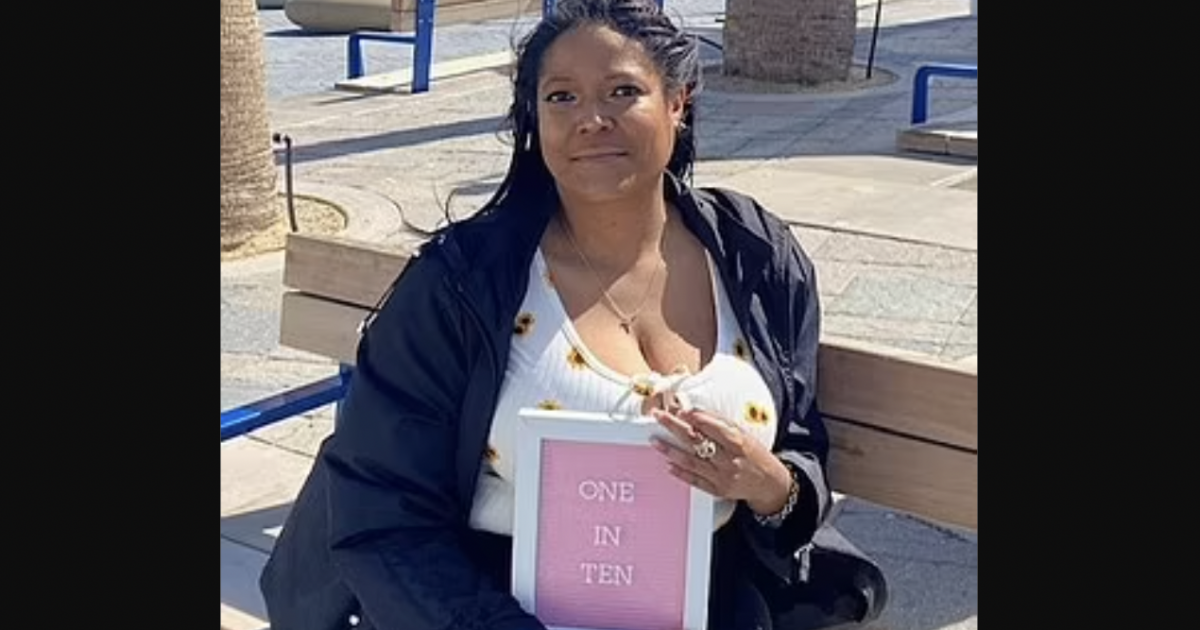Advocating for Your Health as a Woman
- Farren Bay was a teenager when she first started speaking up about intense pain. But it wasn’t until she was 26 that doctors discovered she had endometriosis and two grapefruit sized cysts on her ovary.
- Endometriosis is an often painful disorder in which tissue similar to the tissue that normally lines the inside of your uterus the endometrium grows outside your uterus.
- Sadly, we’ve heard many stories of women’s concerns being dismissed by doctors. That’s why being your own advocate can be key to getting a correct diagnosis and obtaining the best treatment possible while dealing with a diagnosis.
- One cancer survivor told SurvivorNet she recommends asking many questions, so doctors "earn that copay."
In an interview with the Daily Mail, Bay explained the cruel journey she had to take before doctors took her concerns seriously.
Read More“She removed the cysts [in surgery] and during my follow-up appointment, I found out I was diagnosed with endometriosis.”
Endometriosis is an often painful disorder in which tissue similar to the tissue that normally lines the inside of your uterus the endometrium grows outside your uterus.
“Endometriosis is a whole-body disease,” she said. “You’re in pain and your feelings are valid.”
Bay’s first round of drugs was a “terrible experience” that triggered a temporary menopause and left her suffering from “insomnia, hot flushes, mood swings, bone pain and memory loss.” She’s now on a different medication, but she she’s still suffering nausea and fatigue every day, as well as pain in her pelvis, hips and knees.
“At the age of 33, my body can’t do the things I want it to it’s disheartening,” she said. “It also affects my relationships with people in my life, because it’s hard to socialize. Sometimes, I suffer constant nausea and am so fatigued I barely want to go out.
“My body feels like it’s trapped inside an elderly woman.”
Bay continues to talk about her painful experience to hopefully help others in a similar position.
“I hope that sharing my story will help many other people either get diagnosed or feel less alone because this disease is very isolating,” she said.
How to Advocate for Your Health as a Woman
Farren Bay’s story is, sadly, not the first of its kind. In fact, we’ve heard many women talk about how their health concerns were not taken seriously prior to a very serious diagnosis.
In a previous interview with SurvivorNet, April Knowles explained how she became a breast cancer advocate after her doctor dismissed the lump in her breast as a side effect of her menstrual period. Unfortunately, that dismissal was a mistake.
Knowles was diagnosed with metastatic breast cancer at age 39. She said the experience taught her the importance of listening to her body and speaking up when something doesn't feel right.
I Wanted My Doctor To Like Me, Then He Missed My Breast Cancer
"I wanted my doctor to like me," she said. "I think women, especially young women, are really used to being dismissed by their doctors."
Jenny Saldana is another woman who’s spoken up about advocating for yourself. She says she was told "you can't keep coming back here taking up resources for women that really need them" when she was trying to get her breast cancer diagnosis.
"The squeaky wheel gets the oil," she said as advice for others.
Advocating For Yourself While Navigating the Medical World
Evelyn Reyes-Beato feels similarly. As a Latina like Saldana and a colon cancer survivor, she urges people to "get knowledge" so they won’t feel intimated by their doctors. She wants to remind others that they have a right to ask questions and make physicians "earn that copay."
Dr. Zuri Murrell, director of the Cedars-Sinai Colorectal Cancer Center, previously told SurvivorNet that healthcare guidelines are meant to do the right thing for the largest number of people while using the fewest resources.
“The truth is you have to be in tune with your body, and you realize that you are not the statistic,” he said.
Be Pushy, Be Your Own Advocate… Don't Settle
Dr. Murrell says not every patient will “fit into” the mold, so it’s important to “educate yourself and be your own health care advocate.”
"Every appointment you leave as a patient, there should be a plan for what the doc is going to do for you, and if that doesn't work, what the next plan is," Dr. Murrell said. "And I think that that's totally fair. And me as a health professional that's what I do for all of my patients."
Learn more about SurvivorNet's rigorous medical review process.


